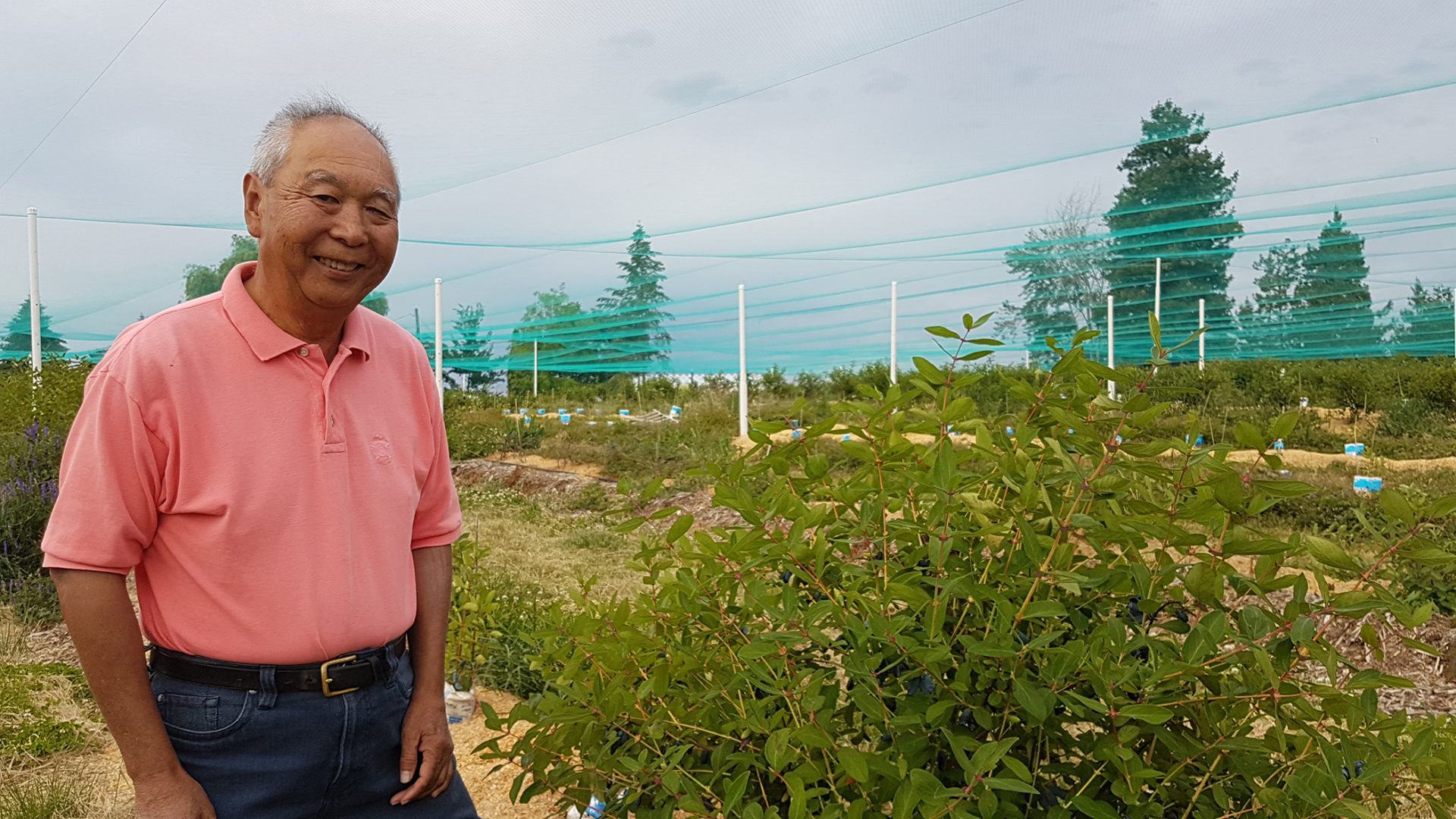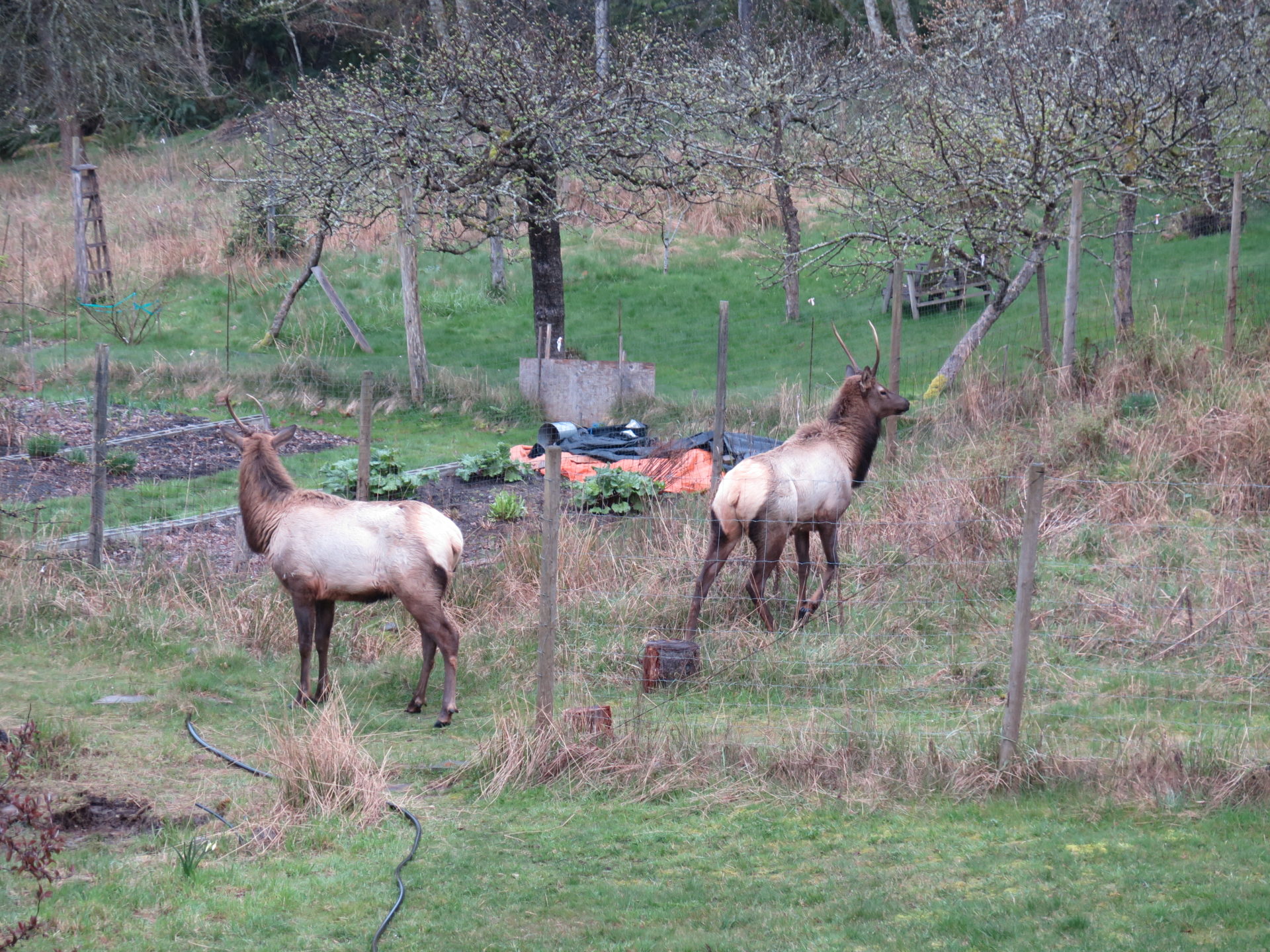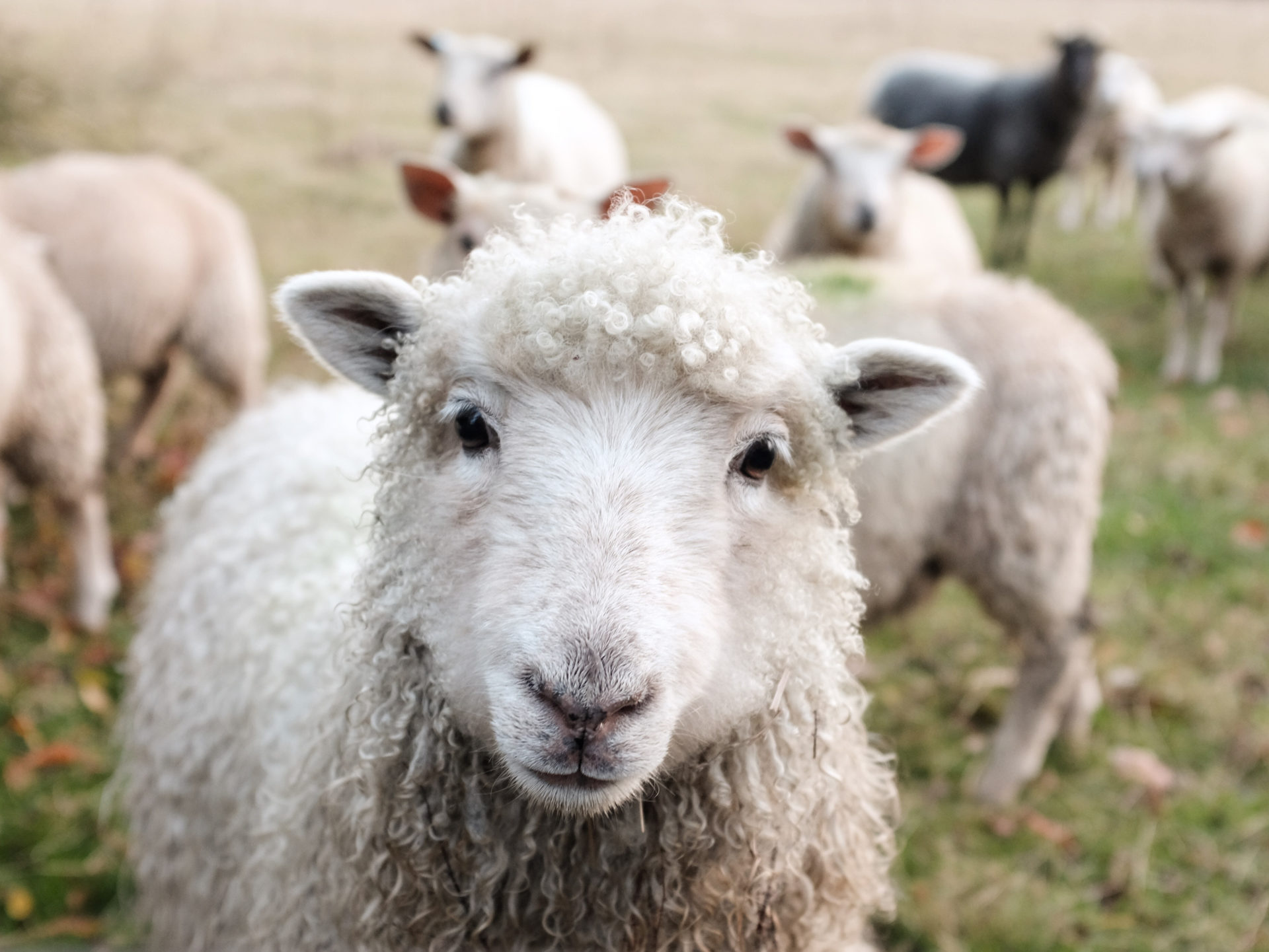KELOWNA – Growing a new crop is not for the faint of heart. In June, after five years in the making, Reg Tomiye harvested his first full crop of haskap berries. They grow in front of his home on a nine-acre plot in South East Kelowna which was converted from an apple and sour cherry orchard.
Tomiye, whose grandfather came to the area in the early 1900s to farm, started AgriForest Bio-Technologies, a tree nursery business in the 1970s. When he sold it and some land, he wasn’t ready to quit having his hands in the business of agriculture with his horticulture, financial and business background.
“We started planting in the fall of 2013 but the plants we get are quite small so what’s normally three to four years to harvest has become five,” says Tomiye who was told about the crop by Kamlesh Patel at AgriForest.
Tomiye says haskaps are well-known in Japan for their health benefits. Hokkaido Island has a history of using the thin-skinned berry dating back hundreds of years. They’re soft and have a unique flavour like a blend of several berries with a zing at the finish, depending on variety and ripeness.
New crop, new challenges
Growing the self-financed berry crop didn’t come without perseverance and innovation.
“The first year that we had any berries, a couple years ago, I saw the berries on the plants and I went back the next day and they were all gone. There were starlings all over so the whole field was wiped out,” he explains, saying he looked at cannons and drones as bird control. However, smart birds arrive at 5 am when noise bylaws and neighbours are more restrictive.
Needing to monitor the crop, weed and control pests, and with the berry’s delicate nature, he’s spent about $80,000 to encase the entire field rather than placing net on top as is done with grapes. Visiting the crop feels a bit like walking into a more sophisticated net version of a childhood blanket fort.
“We engineered the canopy over a two-year period. We got some good old Alberta oil drill pipe and a 12-foot auger attached to the end of an excavator to drill the post holes 10 feet deep and then concreted them in. Then, we cabled everything. But last year we didn’t have everything secured. A wind storm blew all the netting and we lost quite a bit,” says Tomiye.
As a result, he designed cross-sectional cabling to strengthen the structure. He’s also engineered a telescoping post for the middle of the crop to provide support for the net and enable the harvesting equipment which straddles each row from the top.
“This year the netting is staying in place. Last year, it would move 15 feet one way or the other in the wind, which broke wires.”
Hope for ROI
With five varieties and some numbered research plants from the University of Saskatchewan in his plantings, Tomiye continues to experiment with new varieties.
Tomiye uses a blueberry harvester and has two reefer trailers to do the processing. The berries will be frozen. His 2018 crop looks good in terms of size, sugar content and volume. He’s keeping detailed records on varietal results and hoping to see a return on his investment this year.
He plans to market some locally to consumers or chefs. One of the benefits is that haskaps are an early season berry. They may fetch $15 per pound. But his eyes are focused on future opportunities. He’s been talking with overseas buyers who visit the Okanagan looking at cherries.
He sees potential for his farm to become a central haskap collection, processing and distribution facility for frozen berries or berry powder which opens up further use in the food, cosmetic and medicine industries. He says new firmer berry varieties with more upright growth would also help move a commercial industry forward.
“It’s starting to get planted here in BC but people are afraid because there’s no established market. We need to prove we have a market and we can process haskap,” he says.


 Elk sightings have producers concerned
Elk sightings have producers concerned